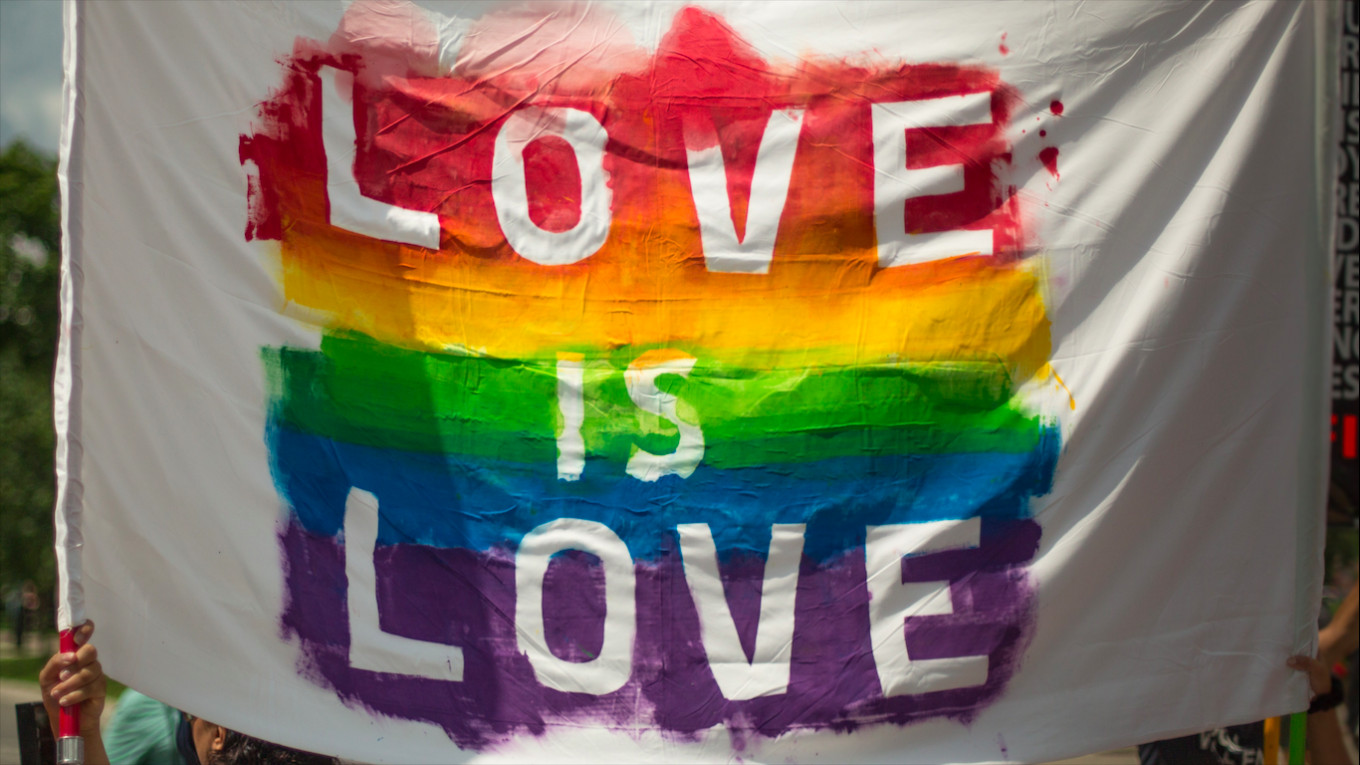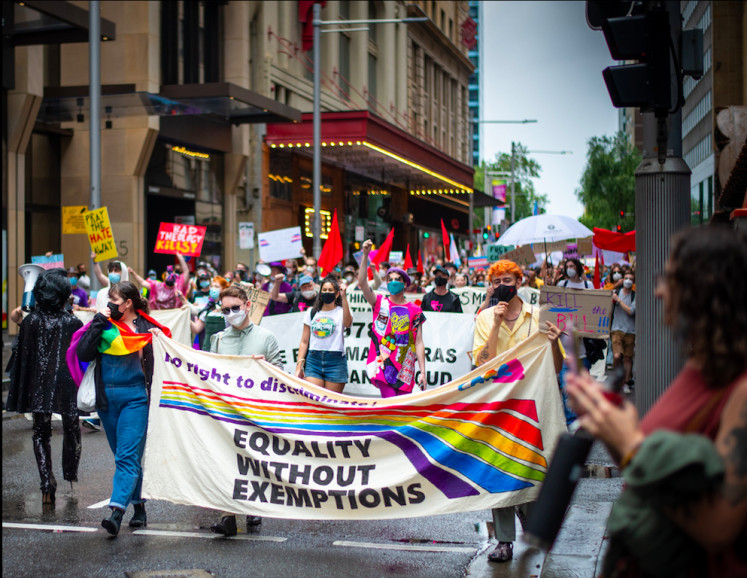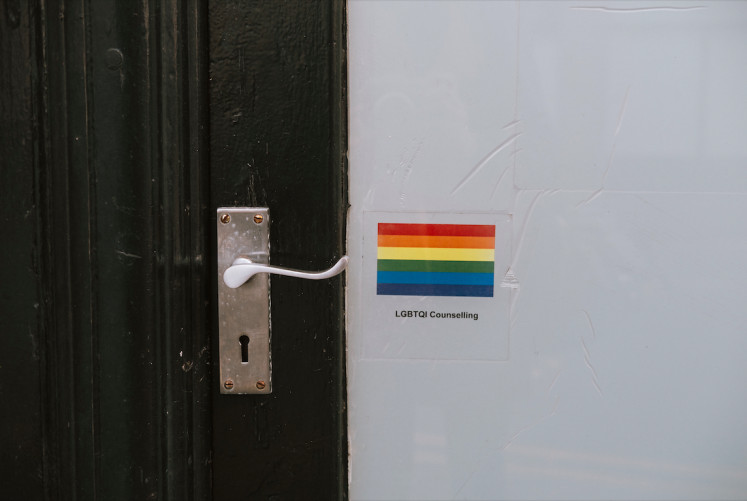Popular Reads
Top Results
Can't find what you're looking for?
View all search resultsPopular Reads
Top Results
Can't find what you're looking for?
View all search resultsDifficult changes: When LGBTQ Indonesians look abroad for a better life
Change text size
Gift Premium Articles
to Anyone
More LGBTQ Indonesians seek freedom by moving to Australia, but to move permanently is not an easy process.
A good number of Indonesian lesbian, gay, bisexual, transgender and queer (LGBTQ) individuals live under pressure. Many experience constant discrimination and see escaping to another country as the only way out.
Doni, a 30-year-old kindergarten teacher from Manado who was outed by a “best friend”, said his family kicked him out of the house in 2016 when they discovered he was gay. Doni opted to not use his real name for privacy reasons.
Like many other LGBTQ Indonesians, Doni picked Australia as his country to move to.
But the actual process of moving is not a simple one, especially for those unfamiliar with the procedures.
Budi Sudarto, director of Ananda Training and Consultancy, which specializes in intersectionality, inclusion and belonging, said that one of the major hurdles was proving that a discriminatory incident had occurred.
“Being, gay, lesbian or transgender is not illegal in Indonesia. When someone is seeking protection [in Australia], they need to prepare a whole document to prove that there has been persecution — for example, death threats by family members.”
“But with no written evidence, it’s hard to prove.”
There is an irony in trying to document such discriminatory occurrences, Budi said, since the process of documenting them can be difficult for individuals living in constant fear and alienation.
Each case has been different, Budi says. "[Some] asylum seekers are not granted a work permit while their application is processed. Some don't bring enough evidence to demonstrate that their life is in danger, while others are very prepared and bring all the evidence that they need to apply for asylum," Budi continued.
"[Many] are not aware that their fate is in the hands of government officials.”
Chosen destination: As Australia is one of the countries that legalised same-sex marriages, some people migrate to Australia to obtain the freedom that they long for. (Unplash/Nikolas Gannon) (Unsplash/Nikolas Gannon)Complex questions
Rita, who identifies as a lesbian and chose not to divulge her real name, is an Indonesian barber based in Melbourne.
She is currently waiting for her permanent residency to be granted. Rita had to go through an interview with a doctor assigned by the immigration department to ensure that she was a lesbian looking for protection in Australia.
“The doctor [asked to] check if I was part of the LGBTQ community, and I replied, ‘Just look at my appearance,” Rita said, referring to her short hair and tomboyish style.
Ananda Training and Consultancy has advocated for standards for “assessing” LGBTQ asylum seekers — recommending immigration officers not ask about sensitive matters when people are looking for protection in the offshore (pre-arrival) or onshore (post-arrival) application process.
Recommendations include not asking whether applicants can prove they are LGBTQ, or to provide detailed information about traumatic events, particularly sexual violence.
No shortcuts
Doni currently works at a kindergarten in Melbourne, Victoria. He decided not to apply for a protection visa after seeing the difficulty his friends faced trying to do so. He explained that this difficulty also stemmed from the fact that there were no laws regarding LGBTQ communities in Indonesia; unlike in Iran, Northern Nigeria, Saudi Arabia, Somalia, Sudan and Yemen.
As a result, LGBTQ individuals sometimes feel the need to put in extra effort. “My friend decided to feminize himself [through gestures] when he was called by immigration, with the hope of convincing them. But being gay or lesbian has no correlation with our gestures.”
“There’s nothing wrong with [the process], but people who are genuinely seeking help are affected,” Doni opined.
On top of these obstacles, there remains no easy way to get the visa.
Natalia Soehono, an immigration lawyer based between Melbourne and Surabaya, said it was against the law for an immigration agent to guarantee a refund should an applicant’s protection visa application be denied.
Those whose visa is revoked might also be unable to return to Australia for a certain period of time. If they reapply for a visa, they would need to add additional information about their previous visa cancellation.
She further added that people could receive a three- to 10-year ban from entering Australia if their visa was revoked. Applicants providing fake information may receive a maximum penalty of 10 years in prison, according to Section 234 of the Migration Act 1958.
Challenges: Budi shared that there are only few organizations providing services for the LGBTQ with multicultural backgrounds in Australia, making it a challenge for them to settle. (Pexels/Anete Lusina) (Pexels/Anete Lusina)Layering challenges
Budi added that securing work and a place to live was a difficult process for those who had been rejected by their families with no financial support, and were faced with financial difficulties.
“I borrowed money from friends to create a bank statement because I wanted to move to another country. There were times when I just cried in the kitchen by myself when nobody was there,” Doni shared.
It is a challenging situation because LGBTQ support groups in Australia do not always understand the experiences of LGBTQ people from different countries and the migration process challenges. He is trying to develop more inclusive support for LGBTQ people from multicultural backgrounds.
“To leave our country, community and family behind — we have to cut ties. For some people, their choices are limited because they need to feel and be safe, and leaving Indonesia is the only way to do it,” Budi added.
For Doni, he had no regrets about leaving Indonesia so he could be himself.
“Some of my friends in Indonesia can’t build a serious relationship because they feel pressure from society to be heterosexually married. But in Australia, I can just be myself, I can live with someone that I love,” Doni closed.












